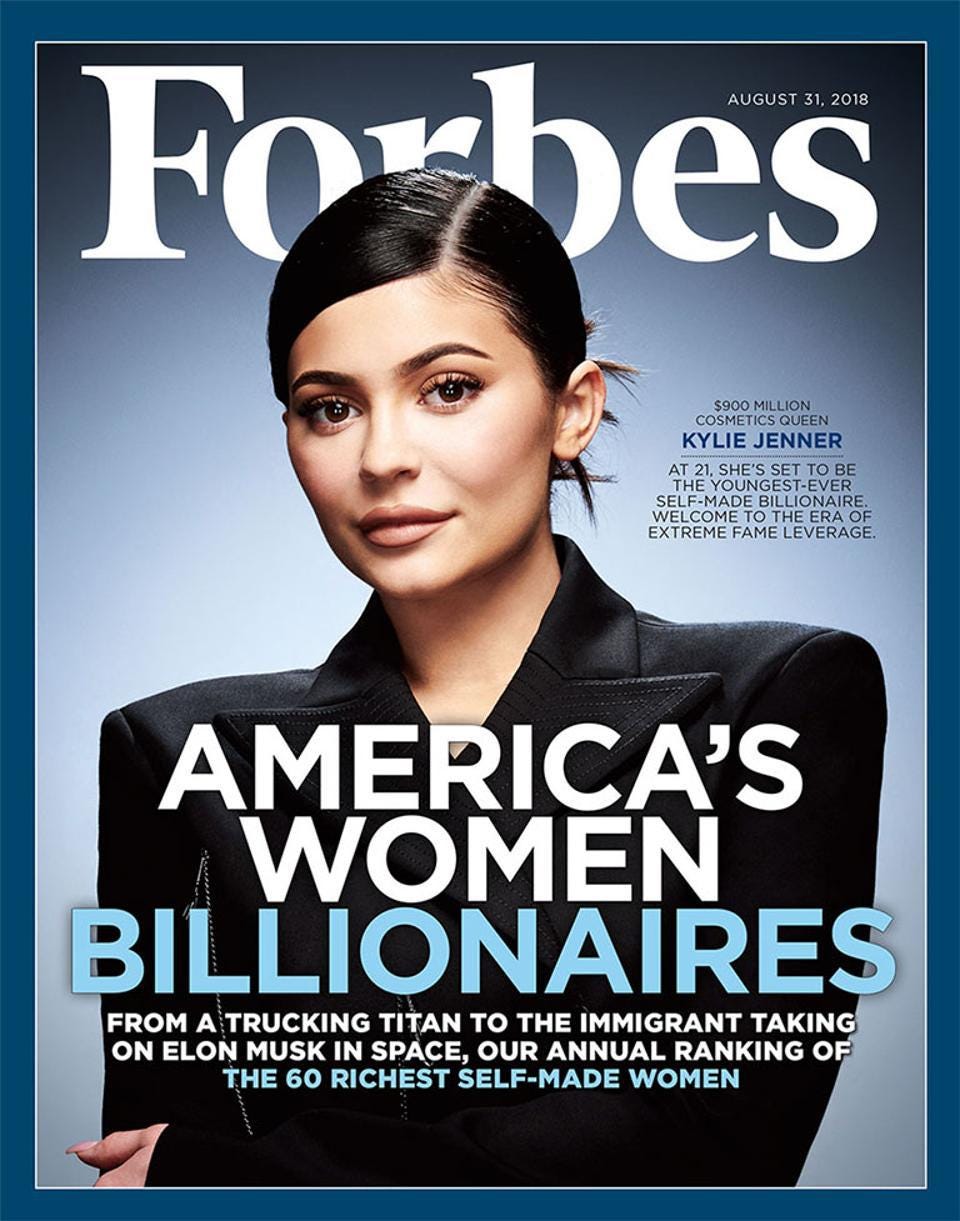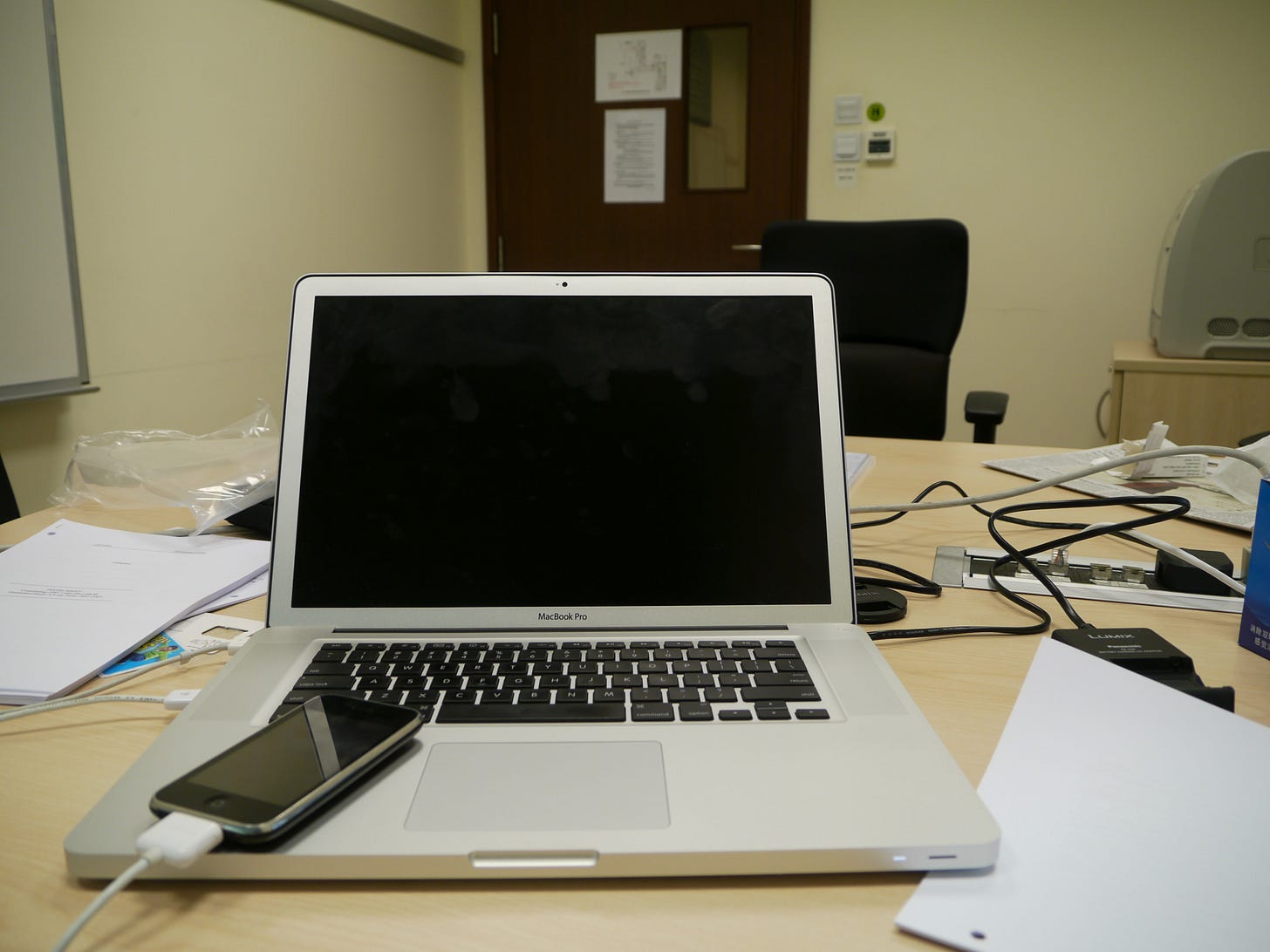Goodbye 2010s: techno-optimism edition
A dose of optimism cloaked in Kardashians and Musks.
Ranjan here. This week I’ll be tying together my two favorite “theory-of-everythings”, while striking an optimistic note for the decade to come. For the purpose of this newsletter, I'll be one of those annoying people who argue that this decade really began on January 1st, 2021.
On December 16th, 2008, the Federal Reserve dropped its policy rate to near zero as a response to the Global Financial Crisis.
Longtime Margins readers would know I consider this a seminal moment in business history and that I ascribe a lot of the craziness of our financial zeitgeist to zero interest rates (always remember, money finds a way!)
In October 2009, Facebook introduced a new, algorithmic way of sorting how its newsfeed was presented:
I'd add in this as an important date. It's the beginning of ad-driven, attention-seeking algorithms becoming central in mediating our media intake.
The confluence of those two seemingly unrelated events came to dominate business culture and strategy over the past decade. Cheap money and big lies came to dominate so much of the way we did, talked about, and thought about business through the 2010s. A lot of the weirdness in capital markets (that has me exasperated) feels like it’s reaching some logical end game right now. Sure, this could continue on another ten years, but I don’t think it will.
And here’s the thing - I’m quite optimistic about the decade ahead. I’ve come across a number of amazing "techno-optimism" pieces (will list these at the end) that outline a pretty compelling case for how mRNA vaccines, operationalized AI, increased investment and a host of other factors will mean greater progress and innovation in the 2020s.
My co-host Can and I have been called "miserablists" and are often considered cynical on the technology industry. However, as I’ve noted in the past, I'm a huge technology optimist. Just not for the kind of technology and industry that dominated the past decade.
Mental Models
This idea that the combination of ZIRP and Social Media algorithms fundamentally shaped the 2010s fits quite neatly into my mental models. But let me try to explain why they should be considered.
First up: ZIRP (zero interest rate policy). A year ago, I wrote how cheap money was distorting industries and creating weird outcomes:
Then, the companies that attracted the money had to spend it. Salaries inflate. Cultures change. Consumers are subsidized. Sure, some technology is created, but overall, nothing operates as it would without that thirsty capital. It changes the economics for competitors that do not welcome in the dollars. The second and third-order effects are difficult to comprehend.
Facebook’s advertising revenue has exploded thanks to heavily-funded companies acquiring customers, which meant spending that money on Facebook and thus allowing Facebook to resist any financial pressure which could force them to address fundamental platform issues. Uber made rides seem cheaper so we stopped taking public transportation. All this capital completely distorts things at the micro and macro level.
Next: Algorithmic Social Media. The piece that most influenced how I think about social media dynamics was "The Internet of Beefs". It explains how the core activity on social platforms is a small number of "Knights" battling, supported by their legions of "mooks". The conflict is the point, and to succeed on social you need to be contentious, loud, and aggressive, above all else.
Sometimes this could be picking fights. Sometimes this could be spouting a big lie. Sometimes it could simply be making grandiose proclamations that you're not really planning to back up (oh hi Business Roundtable). Whatever the specific tactic, the required strategy is to keep people as activated as possible.
It's those two things together, cheap capital and an incentive for the big, bold and brash, that defined the 2010s and painted so many of the business stories we experienced and saw.
Note: While editing this, Can commented that “for an optimistic post, this feels a bit pessimistic”. I can promise you I’m feeling genuinely excited for the decade to come. But, if we’re going to finally move to a better way of doing business, it’s worth reminding ourselves of some of the 2010s greatest hits.
Kardashianization
If anyone represents this intersection perfectly, it would be the Kardashians. They helped combine the reality TV genre with the business world better than anyone.
In July 2018, Forbes published a story featuring a picture of Kylie Jenner on the cover proclaiming "America's Women Billionaires".
In true Kardashian fashion, Jenner had a subsequent 21st birthday party where she had the waiters wear t-shirts with the Forbes cover printed on the back.
In March 2019 they had a follow-up that Jenner was now the 'youngest self-made billionaire ever'. A controlling stake of Kylie Cosmetics was sold to Coty (an old-timer in the beauty space) in November 2019 (giving the company a $1.2 billion valuation).
But in typical Forbes fashion, in May 2020 they published an expose of sorts explaining how they had been lied to for the 2018 story. The numbers Jenner had provided were nothing compared to the numbers presented in the public filings of Coty, and, in fact, it was much shadier:
Of course, white lies, omissions and outright fabrications are to be expected from the family that perfected—then monetized—the concept of “famous for being famous.”
But, similar to Donald Trump’s decades-long obsession with his net worth, the unusual lengths to which the Jenners have been willing to go—including inviting Forbes into their mansions and CPA’s offices, and even creating tax returns that were likely forged—reveals just how desperate some of the ultra-rich are to look even richer.
It really mirrored the whole Trump-Forbes thing where:
There was a lot of lying (Trump had an alter-ego named John Barron who would tell the Forbes folks how rich he was).
Forbes helped build the legend of the billionaire.
Trump/Kylie transformed that into real success (a sale to Coty, becoming President)
Finally, Forbes explained how they were duped, but continue on publishing all those unverified, absurd wealth estimates for others.
I love this story because it's such a perfect encapsulation that in the 2010s. Lying could pay off handsomely. Jenner sold her business, even though the acquirer clearly would've seen numbers not reflective of what she was saying in public. But the entire calculus for the acquisition was they were buying her personal brand. It paid off. Trump became President.
Tweet of the Decade
Kylie's Cosmetics is one small example that you can reasonably argue would've existed in some form in any decade, but I’d argue the scale of it is what’s unique to the 2010s. The rapid ascent was driven by social platform customer acquisition ascent. Subsequent lie-driven, fawning media coverage. This parlayed into a billion-dollar value acquisition by a nervous industry veteran who didn't quite get this new world. All in exactly 4 years. It's such a neat time capsule.
And of course, the ultimate 2010s endnote is Elon Musk became the richest person in the world. His 420 tweet should live in business museums for centuries to come:
For reference, TSLA was trading at a split-adjusted $69.63 at the time (versus $845 as I write this). This was the moment we all were able to witness the genius of being-a-dick-as-a-capital-raising-strategy completely out in the open. He made Tesla central to the overall conversation, and that’s all that mattered.
And even better, it showed us, from a simple risk-reward calculus, in the 2010s you should've always been a dick. It was almost comical to read this Verge piece from August 2019 titled, “The lesson from Elon Musk’s ‘funding secured’ mess is to never tweet". They outline the 'punishments':
Forced out as Tesla chairman.
Paid a $20 million fine.
Tesla paid a $20 million fine.
Musk bought $20 million in Tesla stock to essentially make up for the fine.
Appointed two new independent directors to the company’s board.
Agreed to have his tweets reviewed by Tesla’s in-house counsel.
😂😂😂😂..
Impunity is also perfectly representative of the 2010s.
Tesla went from making 80k cars at the time of the tweet to 180k last quarter, while the stock is up 12x. This post certainly won't be an analysis on Tesla's valuation, (because I value my life) but even the most ardent fanboy would readily admit Musk's personality drives so much of the value. He hacked the system better than anyone. As I'm typing this, I saw this tweet:
From a Reuters piece, "Tesla officials did not immediately respond to a request for additional information." Maybe this will happen. Maybe it won't. Who knows, it really doesn't matter. What the mechanics or reality of this might be are completely irrelevant to the fact that he just tweeted it. The power is in the relentlessness and impunity. The bigger the claim, the more money finds a way. Musk understood this state of the world better than anyone.
Elon Musk, you captured the spirit of the 2010s better than anyone. I’m almost getting a bit nostalgic.
Optimism
I started this piece by saying it would be an optimistic one, and it is. I'm incredibly excited about the coming decade because I am genuinely hopeful the two core trends I outlined will be reversed.
Algorithmically-optimized lying has prominently entered the conversation to the point our ex-President was kicked off. There’s simply no way money can remain this cheap for a prolonged period of time. What that unwind looks like is an entirely separate post, but there will once again be discipline imposed on the allocation of capital. Financial and technological regulation is far more imaginable than just a few years ago. Change is coming.
And what makes me the most hopeful is, this evolution into a more equitable, responsible business environment will coincide with all the incredible technological advancements that quietly took place over the past decade and are ready to make their way into our lives. Seriously, I’m excited.
Will the 2020s Really Become the Next Roaring Twenties? - Steve Levine
Why a dawn of technological optimism is breaking - The Economist
Notes on technology in the 2020s | Eli Dourado
Techno-optimism for the 2020s - Noah Smith
Note 1: In December 2019, at the real end of the last decade, I wrote a piece echoing some of these sentiments (“Innovation and the 2010s”). It was inspired after looking at a photo I took in December 2009, while in business school:
I wondered:
That's a MacBook Pro charging an iPhone 3GS. The cable is different, the computer is a bit smaller, the phone is bit clunkier, but it all looks kind of the same. And I started looking around me. Everything kind of looked exactly as it had a decade ago.
Did we experience real innovation in the 2010s? If you were to transport someone from 10 years ago to today, what would blow their mind?
What will our workstations look like 10 years from now? I’m betting that it will look a lot different than what it looks like today.
Note 2: As I’m doing a final edit, I’m watching GameStop stock explode in just the perfect combination of impunity, manipulation, and ZIRP imaginable. The 2010s haven’t said goodbye just yet (this is the deep, fundamental analyis you can always expect from Margins below):








